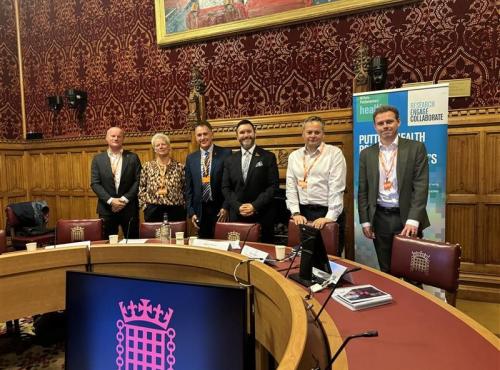Attainment and employment gaps between disabled and non-disabled students are still unacceptably high: the new government needs to work with universities and business to put in place practical steps to eliminate the gap
In this blog, Megan Hector discusses her recent work with disabled students at university and urges the new government to focus on inclusive strategies
2020 will mark the landmark anniversaries of three of the most important pieces of UK legislation for disabled people. It will be the 50th anniversary of the Chronically Sick and Disabled Persons Act, the 25th anniversary of the Disability Discrimination Act, and the 10th anniversary of the Equality Act. This legislation pushed society to take strides forward in its treatment of disabled people: protecting disabled people from discrimination in education, the workplace and other spheres; and legally requiring organisations to provide reasonable adjustments for their disabled employees or students.
Legislation is critical, but the attainment gap is still unacceptably high: much more needs to be done if the government’s laudable goal of eliminating the higher education gap by 2024/25 is to be delivered. It’s against that background that Policy Connect’s Higher Education Commission launched an inquiry in July into the experiences of disabled students in higher education. We are examining what barriers have been created by policy, existing structures, prevailing attitudes towards disabled people, and how these are preventing disabled students from fully accessing the education, resources and wider social benefits of higher education. The Commission, co-chaired by Lord David Blunkett, Lord Philip Norton, and Vice Chancellor of the University of Derby, Professor Kathryn Mitchell, will also look at how disabled students are faring after graduation and in the labour market.
The Commission recently held two roundtables with disabled students. There were many positive comments about life as a student, however there are barriers and hurdles to overcome, including the significant extra costs that disabled students face, such as on accessible accommodation and technology. We also heard about the lack of consistency within and between universities in terms of the support available; and the sometimes poor awareness of the needs of disabled students from non-disabled students, academic staff and others.
14.5% of undergraduate students in the UK declared that they had a disability in 2017 (the latest data available), which is lower than the proportion of disabled people in the working-age UK population at the time, 18%. Disabled graduates are also less likely to be in full-time work (50.6% compared to 57% for non-disabled graduates) and more likely to be unemployed (5.5% versus 3.8% of non-disabled graduates). Helping disabled students achieve their university aspirations and work potential must therefore be a key part of the government’s objective of getting 1 million more disabled people into work by 2027, to ensure the UK draws on the widest range of talent.
There is an abundance of good practice in HE, assisting disabled students to experience a rewarding and stimulating education, which culminate by launching great careers - but we need to ensure the best practice reaches all parts of the sector for every student. The Higher Education Commission will be publishing its report in the spring of 2020, and looks forward to working with parliament, government, universities, business and disabled students to make things happen.



